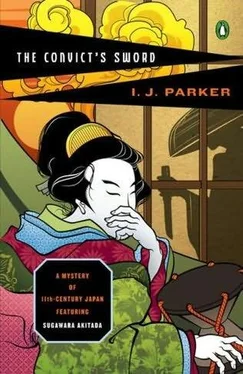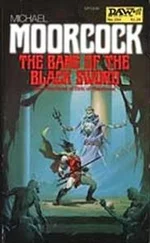I Parker - The Convict's sword
Здесь есть возможность читать онлайн «I Parker - The Convict's sword» весь текст электронной книги совершенно бесплатно (целиком полную версию без сокращений). В некоторых случаях можно слушать аудио, скачать через торрент в формате fb2 и присутствует краткое содержание. Жанр: Исторический детектив, на английском языке. Описание произведения, (предисловие) а так же отзывы посетителей доступны на портале библиотеки ЛибКат.
- Название:The Convict's sword
- Автор:
- Жанр:
- Год:неизвестен
- ISBN:нет данных
- Рейтинг книги:4 / 5. Голосов: 1
-
Избранное:Добавить в избранное
- Отзывы:
-
Ваша оценка:
- 80
- 1
- 2
- 3
- 4
- 5
The Convict's sword: краткое содержание, описание и аннотация
Предлагаем к чтению аннотацию, описание, краткое содержание или предисловие (зависит от того, что написал сам автор книги «The Convict's sword»). Если вы не нашли необходимую информацию о книге — напишите в комментариях, мы постараемся отыскать её.
The Convict's sword — читать онлайн бесплатно полную книгу (весь текст) целиком
Ниже представлен текст книги, разбитый по страницам. Система сохранения места последней прочитанной страницы, позволяет с удобством читать онлайн бесплатно книгу «The Convict's sword», без необходимости каждый раз заново искать на чём Вы остановились. Поставьте закладку, и сможете в любой момент перейти на страницу, на которой закончили чтение.
Интервал:
Закладка:
They stepped across a pool of blood and closed the door.
The woman’s body was gone, but her blood seemed to cover everything she had left behind. Thick, dark puddles marked the floor where she had died; streaks and spatters covered the walls, the mat, the bedding; and smears and bloody handprints defaced the walls and the door they had come through.
“Would you describe the body for me?” Akitada said to Ihara.
The young man pointed to the blood in front of the door. “She was just there, on her stomach, her head toward the door, and her feet toward us. She was wearing a white cotton robe, which was soaked in blood from many deep cuts on her back and front. Her hair had come loose, and she was cold to the touch when I arrived. Is that what you had in mind?”
“Yes. Did she have any money on her?”
“No.”
Akitada began to move about cautiously, looking at everything. “She put up a terrible fight against her attacker,” he muttered at one point.
The lieutenant gestured to the bedding. “After she accommodated him sexually.”
Akitada bent to look at the blood-stained quilts more closely. “Really? How do you know?”
Ihara laughed. “Well, somebody’s used the bedding and her sash was off when we found her. She was half naked.”
“The coroner will tell us,” Akitada said, straightening up. His eye fell on the back door with its many paper strips. “Was that door latched?’ he asked.
“The suspect claims he found it open.”
“Hmm.” Akitada pursed his lips. “She did not try to escape that way,” he said. “I wonder why not.”
“I imagine she was trying to reach her landlord and his family.”
“Yes, perhaps.” Akitada studied the back door, then opened it. The flickering light from their lantern fell on a tiny veranda. Beyond lay a service yard containing a laundry tub, clothesline, some baskets, a small pile of faggots, a broom made of twigs, a rainwater barrel, and more stone tablets. A low wooden fence with a gate ran along a street that passed behind the houses.
“Bring the light closer.” Akitada crouched down and looked at the weathered boards of the wooden stoop. Dusty shapes marked the print of boots and of dirty bare feet. It looked as though the boots went only one way, into the room, but the bare feet were both coming and going and had also shuffled about near the threshold. Akitada placed his own foot next to the prints. The boot print matched his closely, but the bare feet had belonged to someone much smaller.
“Was the dead woman wearing shoes?”
Ihara frowned. “I don’t recall. Why?”
“Somebody barefoot was here.”
The lieutenant was unimpressed and said that the boot prints belonged to the killer, and the dead woman had probably left the others on an earlier occasion. Akitada revised his good opinion of the lieutenant’s intelligence and did not mention the small cut in one of the strips of paper on the door. He had had to bend a little to see it closely and confirm that it had been made from the outside. Someone had spied on the woman inside, someone who was shorter than either he or Tora and who had been barefoot and carried a knife.
Back in the dead woman’s room, Akitada considered the destruction. It looked accidental rather than intentional, a direct result of the victim’s attempt to escape her attacker. Being blind, she had kept to the walls, trying to reach the door to the hallway, and in her struggle against the knife-wielding killer, she had knocked her trunk away from the wall and grabbed for the shelf and torn it off. And all the time, the killer had been slashing and stabbing at her, for there was her blood on three of the walls and finally on the interior door, where the marks of bloody fingers had left vertical smears all the way to the threshold. She had died at the foot of this door, her lifeblood soaking into the dirt.
Akitada looked with pity at the things that had fallen from the shelf. The woman’s life must have resembled that of a starving hermit. The single small earthenware bowl was in pieces but had been chipped long before, and her chopsticks were of plain rough wood. She did not own a large pot to cook rice in, but then she had no rice either. Evidently she purchased small amounts of food in the market and cooked them in a little iron pot on her hibachi. Her food stores were pitiful. A handful of dry millet had spilled from a twist of paper, and among the shards of the bowl lay a few leaves of cabbage and a tiny piece of dried fish.
He tried to remember her. She had been thin, yes, but had she actually looked starved? Surely she had had enough customers, even without adding prostitution to her labors, to live better than this.
The tangled bedding also was quite old and had been mended many times, the stitches and patches grossly uneven. It must have been difficult to work by touch alone. The more he considered her struggle to survive, the more he was filled with wonder. That same spirit had caused her to fight against her killer even when it was hopeless.
He turned his attention to the trunk. It had intrigued him from the start, because it was lacquered and had once been expensive. He opened it, expecting more surprises, but it was nearly empty. Only a few pieces of rough clothing, neatly folded, lay on the bottom. He had no wish to paw through a dead woman’s private possessions, but made himself do a cursory check. A few cheap cotton scarves, two pairs of cotton trousers, and two cotton jackets, the sorts of clothes worn by peasant women, scullery maids, and outcasts, were all that she had owned. If she had plied a trade as a streetwalker, she had certainly made no attempt to look attractive to men. The trunk apparently also held her bedding in the daytime. How very different were the arrangements in most houses. Each member of Akitada’s family had four trunks, one for the clothing of each season. And bedding had a separate storage place.
Tomoe had been very poor.
Akitada was about to drop the lid again, when he noticed a faint bulge under the bottom layer of clothes. He pulled out a small black lacquer box, a box most beautifully decorated with a design of fish cavorting among waves. The pictures were drawn in gold lacquer and the fish scales inlaid with mother-of-pearl. It was an altogether exquisite piece.
He opened the lid, and found that the inside of the box was painted with flowers of the four seasons and that it contained cosmetics. A twisted paper held powder to whiten the face, and small compartments were filled with kohl to outline the eyes and paint eyebrows, tweezers to pluck eyebrow hairs so the new ones could be painted above them, rouge for the lips, and a vial of tooth-blackening liquid. They were the sorts of cosmetics used by highborn ladies or elegant courtesans. What possible use were they to a blind street singer? There was no mirror in the room, any more than the windowless space had needed any lamps. Had she stolen the box for resale? If so, why had she not sold it long ago?
Among the twisted papers containing various powders he found another puzzle. One of the paper packages felt hard under his fingers. He undid it and saw that it contained three pieces of silver, an astonishing amount of money for someone who lived on the edge of starvation.
He showed his find to the lieutenant, who was first excited, then angry.
“Those lazy louts should have found it when they searched the room. You were right, sir. The pieces of dung cannot be trusted with an investigation. When they told me the dead woman had no money, I wondered if she’d been robbed. I suppose this proves she wasn’t. So we are still working with an unpremeditated act, with a crime of passion?”
“Hmm.” Akitada flattened out the paper and saw some faint characters written on it, not with ink and brush, but with something like charcoal. The characters had become smudged from handling, but he thought they were names: Nobunari and Nobuko-the first male, the second female. Was the money theirs? Or had she simply wrapped the coins in a discarded piece of paper she had found somewhere? Paper was not readily available to someone who could neither read nor write. He corrected himself. It was theoretically possible for a blind person to write, provided that person had once had sight and had been taught. But a street singer? He shook his head and put the money back in its paper and replaced it. He closed the box and handed it to the lieutenant. “You had better take care of this,” he said. “It may turn out to be evidence. It either proves that robbery was not the killer’s aim-or that he was interrupted before he could ransack the trunk.”
Читать дальшеИнтервал:
Закладка:
Похожие книги на «The Convict's sword»
Представляем Вашему вниманию похожие книги на «The Convict's sword» списком для выбора. Мы отобрали схожую по названию и смыслу литературу в надежде предоставить читателям больше вариантов отыскать новые, интересные, ещё непрочитанные произведения.
Обсуждение, отзывы о книге «The Convict's sword» и просто собственные мнения читателей. Оставьте ваши комментарии, напишите, что Вы думаете о произведении, его смысле или главных героях. Укажите что конкретно понравилось, а что нет, и почему Вы так считаете.












